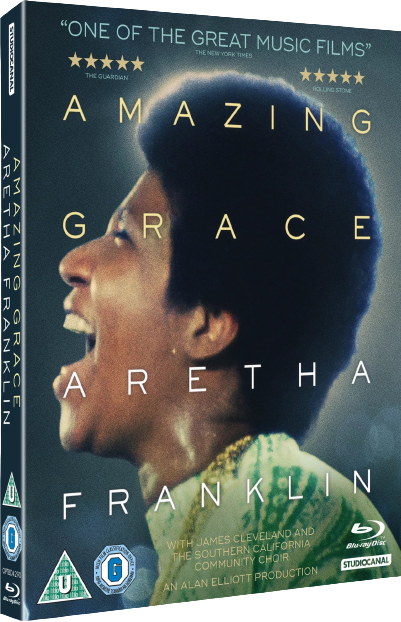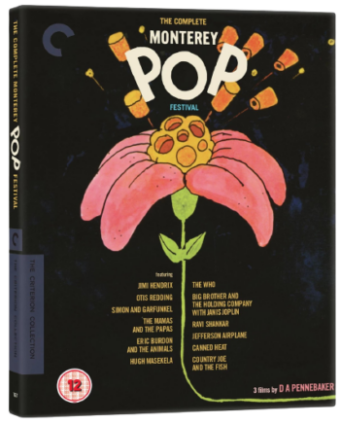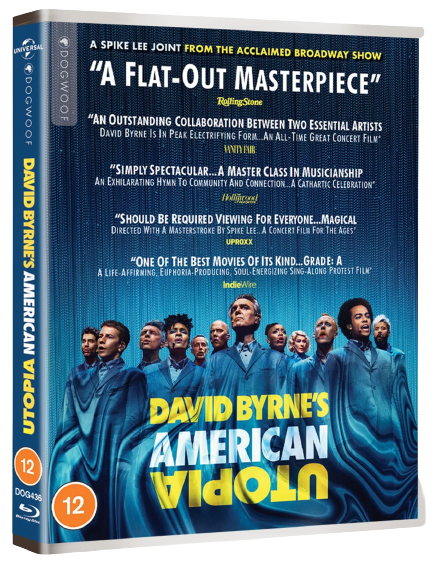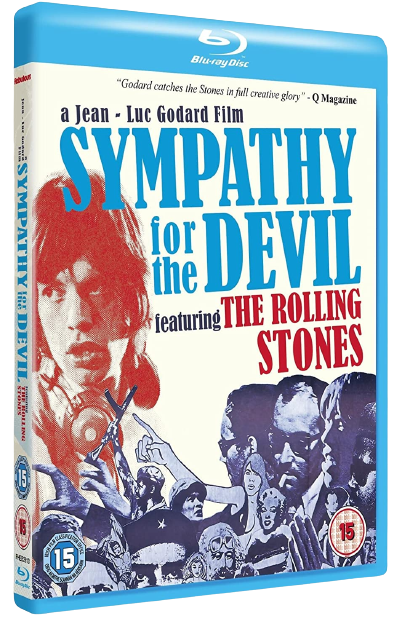in-store offers
Monsters of Doc
At Fopp
At their best, music documentaries can offer a powerful glimpse into the creative process, revealing the inspirations and struggles that go into making great music. They remain a vital and enduring part of the rock ‘n’ roll canon, offering us a chance to experience the music and stories that have shaped our cultural landscape in a whole new way. This month at fopp our Monsters of Doc promotion is offering some of the masterpieces of the genre at a reduced price. Let’s take a look at 5 of our favourite titles in the offer…

The Complete Monterey Pop Festival – The Criterion Collection
The Monterey Pop Festival, it was a seismic event in the history of rock and roll, a three-day bacchanal of music and countercultural rebellion that took place in the summer of 1967. The festival was a gathering of the tribes, a convergence of the most visionary and daring musicians of the day, and it proved to be a turning point not just for the music industry but for American culture as a whole.
It was the first major rock festival in America, and it set the standard for all that would follow. It was the birthplace of the Summer of Love and it marked the arrival of the counterculture as a force to be reckoned with. But what really made Monterey Pop so unforgettable was the music. The lineup was an embarrassment of riches, featuring acts like Jimi Hendrix, Janis Joplin, The Who, and Otis Redding. These were the artists who would go on to define the sound of a generation, and they were all there, on one stage, for three glorious days.
This 50th anniversary Blu-ray edition contains; New 16-bit 4K digital restoration, supervised by director D. A. Pennebaker, with uncompressed stereo soundtrack on the Blu-ray, Alternate soundtrack featuring a 5.1 surround mix by recording engineer Eddie Kramer, presented in DTS-HD Master Audio on the Blu-ray, audio commentaries from 2002 featuring Pennebaker, festival producer Lou Adler, and music critics Charles Shaar Murray and Peter Guralnick amongst tons of other special features!
 David Byrne’s American Utopia
David Byrne’s American Utopia
David Byrne, the former frontman of the Talking Heads, has long been known for his avant-garde approach to music and performance, and American Utopia is no exception. It’s a bold, daring, and at times downright strange piece of cinema that defies easy categorization.
For those unfamiliar with the show, American Utopia is a musical extravaganza featuring Byrne and an eclectic ensemble of musicians and dancers, all dressed in matching grey suits and barefoot. The show is a celebration of music, movement, and the power of community, and it’s hard not to get swept up in the sheer joy of it all. But what really sets it apart is its politics. Byrne doesn’t shy away from taking on issues like immigration, racism, and violence, and he does so with a level of nuance and complexity that is rare in popular music. It’s a powerful reminder of the need for social justice, and it’s a testament to Byrne’s commitment to using his platform for good.
In short, American Utopia is a triumph. It’s a testament to the power of music and performance, and it’s a reminder that, even in these troubled times, there is still hope for a better future. So put on your grey suit, kick off your shoes, and let David Byrne take you on a journey to a better world. You won’t regret it.
 Sympathy for the Devil
Sympathy for the Devil
This film is a tour de force of style, substance, and sheer rock ‘n’ roll energy, and it’s no wonder that it’s considered a classic among music documentary aficionados.
First of all, let’s talk about the music. Sympathy for the Devil features one of the most iconic and revolutionary songs of all time, by none other than The Rolling Stones. This track, with its hypnotic rhythms and devilishly catchy lyrics, perfectly captures the rebellious spirit of the late 1960s, and Godard’s film gives us an intimate and immersive look at its creation. But this is no ordinary concert film. Godard, ever the provocateur, uses Sympathy for the Devil as a platform to explore the political and cultural upheavals of the era, weaving in footage of the Black Panthers, anti-Vietnam War protests, and other flashpoints of the counterculture. His use of split screens, jump cuts, and other avant-garde techniques is both dazzling and disorienting, forcing the viewer to question their assumptions about music, politics, and art.
Of course, no discussion of Sympathy for the Devil would be complete without mentioning the Stones themselves. The band members, particularly Mick Jagger, are at the height of their creative powers here, radiating charisma and swagger as they jam in the studio and discuss their art and politics. But Godard is never content to simply celebrate his subjects – he also challenges them and the audience with pointed questions and subversive juxtapositions. Sympathy for the Devil is a cinematic masterpiece that transcends the boundaries of both music and documentary. It’s a testament to the power of rock ‘n’ roll as a force for social change and artistic innovation.

Bob Dylan: Don’t Look Back – The Criterion Collection
A time when Dylan was at the height of his powers and on the verge of transforming popular music forever. It’s a raw, unfiltered look at a genius at work, and it’s impossible not to be captivated by its sheer intensity. Directed by D.A. Pennebaker, the film follows Dylan on his 1965 tour of England, capturing his performances, his interactions with fans and the media, and his behind-the-scenes antics. What makes the film so compelling is the way it captures Dylan’s mystique, his wit, and his irreverence. Whether he’s dueling with journalists or playing games with his entourage, Dylan exudes a sense of cool that is both alluring and intimidating.
But what really sets Don’t Look Back apart is its focus on the music. The film captures Dylan’s performances with a level of intimacy and immediacy that is truly remarkable. From the iconic “Subterranean Homesick Blues” cue-card scene to the spine-tingling rendition of “It’s All Over Now, Baby Blue,” the film showcases Dylan’s songwriting and musicianship at their absolute peak.
Of course, the film is not without its controversies. Dylan’s infamous “Judas” moment, in which he tells a heckler “I don’t believe you, you’re a liar,” has been debated and analysed for decades. But what is clear is that Dylan was pushing boundaries and challenging expectations, both in his music and in his persona. And Don’t Look Back captures that sense of rebellion and iconoclasm perfectly.

amazing grace


 David Byrne’s American Utopia
David Byrne’s American Utopia Sympathy for the Devil
Sympathy for the Devil